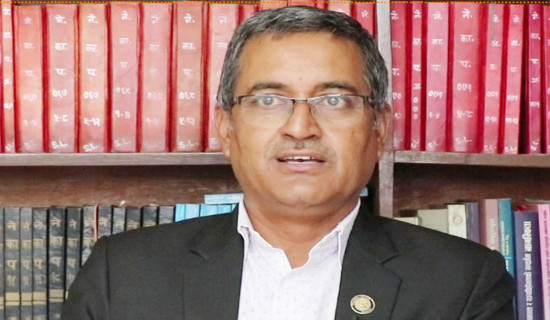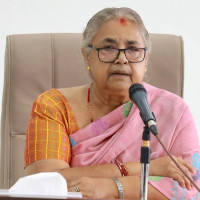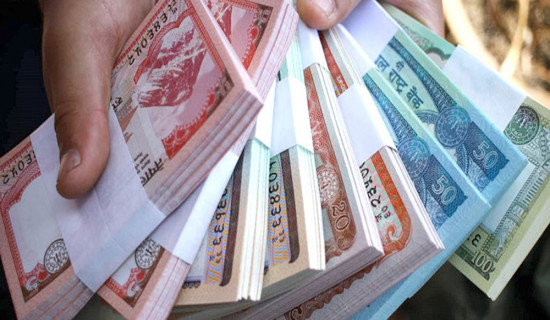- Monday, 15 September 2025
Term Ceiling For Elective Posts
A debate is going on in Bangladesh to limit a prime minister’s term to two terms. The Mohammed Yunus government’s proposal envisages such a ceiling to restrain political leaders from staying in office through manipulation and other dubious means. For the first time in world history, the United States’ first President, George Washington, set a precedent maintained till this day, except with one exception, chiefly because of World War II years when Franklin Roosevelt was elected four times, chiefly aided by World War II years.
In the 1980s, a single-term ceiling was introduced in the Philippines and South Korea. A few in both these countries had to quit before they could complete their designation durations on charges of corruption or other misdeeds. Filipinos had bitter memories of Ferdinand Marcos employing highly questionable means to stay in office. First elected in 1965 on the World War II record he claimed, Marcos ruled for 20 years while opponents disputed his victory in 1985. He ruled under martial law imposed in 1972, which was extended for the next 14 years until his enforced resignation.
Weeks of nationwide protest rallies, strengthened by defections of civil servants and military officers to the People Power movement’s demand, eventually compelled Marcos to step down in February 1986. A known staunch supporter of the United States, he and his family members were allowed to live in exile in Hawaii. The American press and Filipinos in general accused the Marcoses of stashing away billions of dollars in cash and gold in foreign bank vaults. After Marcos died in exile, his wife Imelda and children were allowed to return to the Philippines, facilitated by the US.
Attempt quashed
Widow of the assassinated opposition leader Benigno Aquino, Corazon Aquino, spearheaded the People Power movement in 1985-86, which culminated in installing the protest rally commander in the seat of power. A new constitution was promulgated the same year, and Corazon was elected by a landslide majority for six years, with no provision for an extension.
Aquino and her successor, Gen Fidel Ramos, toyed with the idea of bending the constitutional spirit for a second term. But they dropped the intention after the intelligentsia in the archipelago strongly opposed the audacity. When drafting the 1987 constitution, South Korea borrowed a leaf from the Philippines’ constitution by limiting a president to a single five-year term. To their credit, leaders did not go for such defiance, though most of them were charged with misuse of office, corruption and other misdeeds.
Donald Trump, soon after his inauguration as the 45th US president in January, for a second time, even if after a four-year intermission, hinted that he could seek a new innings for 2029. In the unlikely event of the idea bearing any fruit, he would be 83 years old. Trump seems to have gauged the improbability of such a prospect, clearing the way for his ambition. He never talks about it any longer. First and foremost, age is not on his side. There is also the legal battle to be confronted for a verdict on whether the constitution permits the undertaking.
Trump’s effort might have been partly to fight for his Make America Great Again. He also covets the Nobel Peace Prize and makes no secret about the obsession. In fact, some leaders flatter him with a call for his nomination. That might be the reason for one of the causes of his deep dislike of Barack Obama, who not only won two terms at the White House but was awarded the Nobel Peace Prize for contributions few bother to note and repeat.
After the disintegration of the Soviet Union in 1991, Russia abandoned the communist constitution and clamped a ceiling of two four-year terms on a president. Boris Yeltsin served out the first four years and went on to win a second and final tenure. Shortly before the mandatory adieu to the high office in December 1999, he stepped down to enable Prime Minister Vladimir Putin to fill the vacant seat for the remaining five months.
A former KGB intelligence agency chief, Putin was elected twice thereafter and had his close friend Dmitry Medvedev appointed prime minister. In May 2008, Medvedev won the presidential election, with Putin’s full backing. Putin donned the premier’s mantle. Four years later, the two switched roles again. Russia’s amended constitution now defines a president’s tenure as six years. Putin will complete 30 years in office when at the end of his current six-year term ends in 2030. After 25 years in the seat of power, what awaits Putin in 2030? With a public approval rating at 85 per cent, the rest of the world is baffled by this phenomenon.
Call for expansion
Some Western agencies and commentators accuse Putin of gross misuse of the state-owned media networks to boost his approval rating. But the hard fact remains: if media control extended such power to boost one’s approval rating, numerous politicians would have lasted far longer than they eventually did. Parliamentary systems do not impose term limits. Some constitutions with non-Westminster-style political systems put a limit on the executive head’s term. Proponents of the “no-limit” lobby want voters to decide whether to retain or reject someone’s extensions.
In the last few decades, scattered voices have suggested that elective representatives, too, be bound by fixed terms—two or three at the most so that fresh faces could be installed to voice public concern and introduce new minds for innovative initiatives. For the time being, the call for term limits for all elected representatives at national and lower levels will not gather much steam, barring exceptions. It is destined to be treated as an exercise in academic discussion.
The non-renewable term for a president in the Philippines and South Korea is considered to be a safeguard against concentration of power, which could prove vulnerable to an incumbent executive’s dubious hunger for power and chances of employing undemocratic means to stay in power. Interestingly, some countries enforce regulations that bar the board of directors of non-governmental organisations from serving more than two terms but put no ceiling on political leaders.
(Professor Kharel specialises in political communication.)















